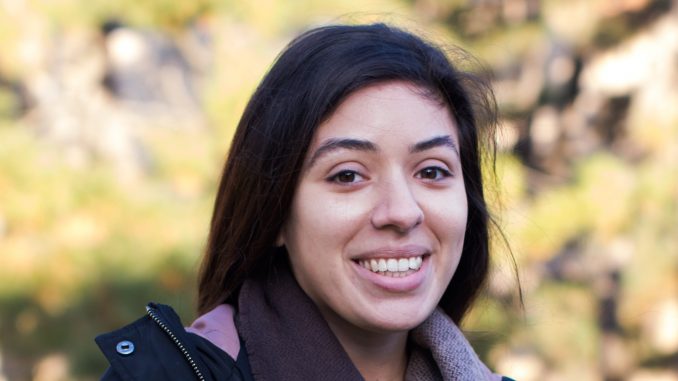
I am Latina.
I grew up surrounded by the Spanish language. I heard it at my house, my friends’ houses, in stores, when walking through my neighborhood, yet I am not fluent in Spanish.
My Latina identity comes from how I was raised and the culture I embraced as an individual. But for some, my fair skin and lack of fluency in Spanish make me white, not Latina.
People have told me that I’m “fake Hispanic” or “such a white girl.”
The number of times I have heard these judgments is ridiculous. They come from strangers and some of my friends who think it’s funny.
Not fully knowing Spanish does not make me white, or not Latina. To fight the negativity, I repeat this to others because I know who I am and where my roots are from: I don’t speak Spanish fluently, but I am still Latina. My family, my culture and my upbringing make me Latina, and that’s that.
Growing up, I was somewhat ashamed of my physical characteristics. My mom has fair skin, while my dad is darker. My skin is even lighter than my mom’s.
My mom is fluent in both English and Spanish, but when she orders food from the corner bakery or asks where grocery items are in the supermarket, employees speak to her in English. They assume English is her first language because of her fair skin, green eyes and light brown hair, even when she responds in Spanish.
Witnessing these interactions frustrated me. I never understood why others thought a person could not have fair skin and be Latinx.
I live in Jackson Heights, Queens, New York City, which is one of the most diverse areas in the United States. People in my neighborhood are from the Caribbean and Central and South America. We all have different skin colors and speak different levels of Spanish, Portuguese and English.
Since I transferred to Temple, I have found some members of the community do not understand people of color or know where we come from. Most of their assumptions seem to come from ignorance, not criticism.
But once, I heard a much more offensive comment. A student asked me where my parents were from and then followed up by asking, “Are they illegal?”
At that moment, I was in disbelief. Never in my life had someone blatantly asked me that. I was baffled. I felt sorry for this young woman. She did not have the knowledge or culture to understand.
My mother immigrated to Mexico from Cuba and then came to the U.S. when she was 11, flying away from Fidel Castro’s rising regime. She and my father, who immigrated from Peru when he was 17, brought their culture and knowledge to the U.S.
My parents taught me to be hardworking, to know right from wrong and to value education. They taught me to believe in God, to dance bachata and cumbia, to make empanadas, lomo saltado — a popular Peruvian stir fry combined with strips of steak, onions, tomatoes and french fries — and arroz con pollo.
Together we sing along to Héctor Lavoe, Celia Cruz, Shakira and Marc Anthony in our family car and in the house. This summer, we cheered on Peru, surrounded by Peruvians, in a Peruvian restaurant when the team played in the World Cup for the first time in 36 years. Together, my parents have shared stories about their upbringings in Peru and Cuba, what their dreams were, who my family is, where my family comes from and much more.
We are all Latinx. Not based on our skin color or the amount of Spanish we spoke, but our shared culture.
I inherited this culture and knowledge from my parents and both of my parents worked tremendously hard to help me achieve in life. I am who my parents raised and the culture I inherited.
Therefore, I am Latina.


Be the first to comment